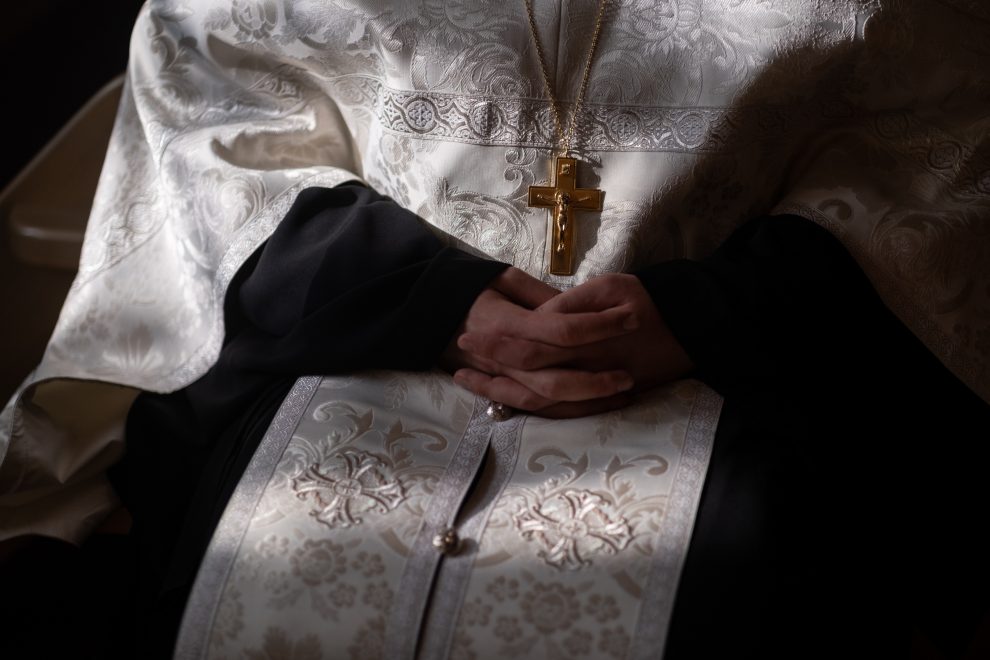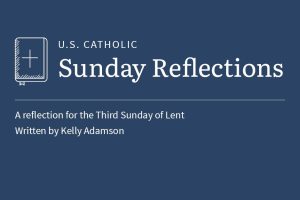A bishop’s authority cannot replace the graced conscience of the baptized.
I’ll never forget my first serious argument with a priest: I was a senior in high school and co-director of a retreat. A highlight of the experience was a surprise letter from our parents, often an emotional moment after a long weekend of little sleep, a lot of soul-searching, and the combined intensity of 40 teenagers.
But one participant didn’t have a “parent letter.” She had discovered her mother writing it, and—their relationship being rancorous—she demanded that her mother discard it. The student leaders of the retreat decided that we would write our classmate a letter of encouragement and support; Father Dan, who had spoken at length with her mother and sympathized with her, forbade us to do it. His injunction had the exact opposite effect. The girl got a letter from us; we got chewed out.
It was the first time I substituted my own judgment for an ordained authority, and to this day I see it as the first moment in my maturity as a Christian. Listening to the voice of our own consciences and consulting with those around us, my co-leaders and I came to a good decision, one our priest strongly disagreed with, but nevertheless a moral course of action that I still stand by today.
I thought of this admittedly minor incident recently in light of the much more serious moral situation of St. Joseph Hospital in Phoenix. In late 2009 the hospital’s doctors judged the pregnancy of a mother of four an imminent threat to her life. Consulting the information available to them—the medical facts of the case and the U.S. bishops’ guidelines for Catholic hospitals—the hospital ethics board judged that terminating the pregnancy was the best, albeit tragic, course of action available to them, and that it was permitted under the bishops’ directives.
After the fact the local bishop, Thomas Olmsted, judged that they had erred and declared the Catholic parties to the procedure automatically excommunicated, including a Sister of Mercy. Over the course of a year, the hospital reviewed the case, consulted an outside moral theologian for her opinion, and decided to stand by the decision.
Olmsted, however, refused to accept that conclusion and demanded that the hospital assent to his judgment or else lose its Catholic status, which he indeed revoked last December.
At issue here is not who was right; both parties had sound arguments to defend their positions on a particularly difficult moral case, one that has drawn conflicting opinions from experts. The more serious question is whose judgment should prevail: that of the medical and administrative staff of the hospital—and finally of the patient—or of the local bishop.
A Catholic cannot deny that the bishop is the authoritative teacher of the faith in his diocese. It is a further step, however, to insist that the current bishop’s personal application of church teaching on a specific case must be followed. Being a bishop, after all, does not guarantee a supernatural freedom from moral error, much less an abundance of prudence, compassion, or expertise in a particular matter.
Regardless of where one stands on the Phoenix case, the principle that the faithful are obliged to follow their consciences must be insisted upon, even defended, especially when confronted with serious situations that require immediate action. This isn’t a matter of simply being allowed to do what one wants. It presumes that the Catholic in question has taken seriously her responsibility to apply church teaching to the situation and consulted whatever sources of wisdom and authority are available to her, as the hospital ethics board did. But to substitute another’s judgment, even a bishop’s, for one’s own conscientious conclusion would be to abdicate one’s responsibility as an adult Christian.
It is never easy to buck authority, much less one rooted in the divine institution of the church. At the same time, it is an unjust intrusion for any Christian, even a bishop, to demand that his personal prudential judgment be substituted for that of another baptized person.
Catholic teaching since the Middle Ages has held that it is in one’s conscience that the voice of God speaks, and the baptized must follow the dictates of a conscience guided in good faith by church teaching and God’s grace. Thwarting this profoundly sacred obligation, rather than ensuring right moral action or good order, threatens to make the church more an autocracy than a communion of those, as St. Paul puts it, called to the freedom of the sons and daughters of God.
This article appeared in the March 2011 issue of U.S. Catholic magazine (Vol. 76, No. 3, page. 8).















Add comment